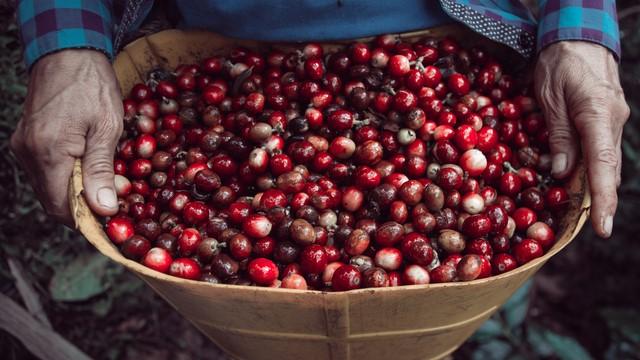- Home
- Origins
C-Market: $1.86 USD
as of 05/12/2023
- Offerings
Featured Origin
Mexico SHG
Vel posuere massa euismod pharetra sed erat velit ut sapien. Elit adipiscing quisque sit eget. Adipiscing viverra massa eros enim. Scelerisque sit interdum sit quis. Sit cursus mi semper dui malesuada neque quam senectus nulla. Dignissim in proin lacus vitae augue. Lectus morbi volutpat.
C-Market: $1.86 USD
as of 05/12/2023
- Categories
Featured Deal
Columbia Dulima
Vel posuere massa euismod pharetra sed erat velit ut sapien. Elit adipiscing quisque sit eget. Adipiscing viverra massa eros enim. Scelerisque sit interdum sit quis. Sit cursus mi semper dui malesuada neque quam senectus nulla. Dignissim in proin lacus vitae augue. Lectus morbi volutpat.
C-Market: $1.86 USD
as of 05/12/2023
- Home
- Origins
C-Market: $1.86 USD
as of 05/12/2023
- Offerings
Featured Origin
Mexico SHG
Vel posuere massa euismod pharetra sed erat velit ut sapien. Elit adipiscing quisque sit eget. Adipiscing viverra massa eros enim. Scelerisque sit interdum sit quis. Sit cursus mi semper dui malesuada neque quam senectus nulla. Dignissim in proin lacus vitae augue. Lectus morbi volutpat.
C-Market: $1.86 USD
as of 05/12/2023
- Categories
Featured Deal
Columbia Dulima
Vel posuere massa euismod pharetra sed erat velit ut sapien. Elit adipiscing quisque sit eget. Adipiscing viverra massa eros enim. Scelerisque sit interdum sit quis. Sit cursus mi semper dui malesuada neque quam senectus nulla. Dignissim in proin lacus vitae augue. Lectus morbi volutpat.
C-Market: $1.86 USD
as of 05/12/2023
$587.31

Sulawesi G1 Wet Hulled – Mamasa Valley (Aged 36 Months)
About This Coffee
About This Coffee

This is a Grade 1 wet hulled coffee, aged for 36 months, cultivated in the Mamasa valley in the western province of Sulawesi. It was the Dutch government that introduced the process of aging coffee from the East Indies for 2-3 years and the “brownish” beans came to be associated by consumers with high quality and a “mellow” cup. Later, this coffee would assume the moniker “Old Government Java.” Aged coffee became so popular that when disease decreased supply from Java and Sumatra to the point that producers could ill-afford to sit on coffee, they began to “sweat” coffee during its 4-5-month voyage, much of it through the tropics, as an alternative to aging. The coffee would be sealed in the hold of cargo ships to sweat during the voyage, arriving brown. The darker brown the coffee, the higher the price paid. In fact, if a captain managed to deliver “extra brown” coffee, they were paid a bonus..
| Country of Origin | Indonesia |
|---|---|
| Harvest Season | 2018/19 |
| Coffee Grade | IDN CA WA SUL WH |
| Bag Type | Grain Pro / Ecotact |
| Plant Species | Arabica |
| Processing | Wet Hulled |
| Variety | S795, Typica |
| Region | Mamasa Valley |
|---|---|
| Growing Altitude | 1300-1800m |

History of Coffee in Zambia
The history of Zambian coffee seems familiar: men in Holy Orders of one sort or another arrive and plant seeds. But in the case of Zambia, missionaries did not introduce coffee farming until the 1950s. By the time commercial coffee production began in Zambia, the British had considerable experience in starting and operating coffee plantations in India, Kenya, and elsewhere. Planting coffee was an attempt to decrease a dependence on copper exports. Not surprisingly, the emphasis was on yield and production efficiencies. Plantations were large and orderly, grown in full sun on flat land, and processed in large wet mills wherever possible. Nevertheless Zambia made almost no appearance whatsoever on the world coffee stage until coffee was officially exported for the first time in 1985.
Growing Coffee in Zambia
The Northern province has the best conditions for arabica coffee cultivation in Zambia with its relative proximity to the equator and abundant altitude (Mafinga Hills being the highest point in the country at 2,300 masl). Most coffee grows from 1300 – 2300 masl. Zambia produces both washed and naturally processed coffee and has introduced some honey processing. A wide range of varieties including Catimor 129, Castillo, Java, and other trial varieties. Specialty grades are AAA, AA, AB and Peaberry.

Sample Roasting Guide
Consistency is key when sample roasting. Yet, your first crack won’t always happen at the same time, which makes it difficult to know when to end your roast. Use this guide to know when to discharge depending on how long it took you to reach first crack.

